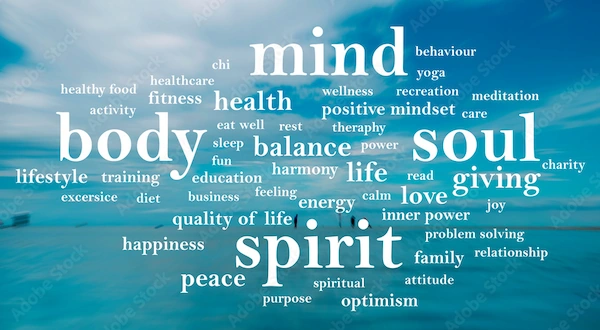
The Paradox of Seeking Outside What Can Only Be Found Within
The spiritual journey often begins with a search external to ourselves—through books, teachers, and traditions that promise illumination. Yet true awakening contains a fundamental paradox: the answers we seek outside ourselves can ultimately only be discovered within. This paradox forms the cornerstone of authentic spiritual evolution, where the seeker must eventually become their own guide, their own light in the darkness.
The Seduction of External Authority
When we place our spiritual development in the hands of external authorities, we participate in an ancient pattern of abdicating our inherent sovereignty. This pattern runs deep in human consciousness—the desire to be led, to have someone else shoulder the burden of uncertainty that accompanies profound inner work.
This abdication manifests in multiple ways:
- The unconscious projection of our own wisdom onto another, creating an illusion of their superiority
- The comfort of prescribed paths that relieve us from the responsibility of forging our own
- The subtle avoidance of facing our shadow aspects by focusing on another’s light
- The mistaking of information and teachings for genuine transformation, which only occurs through lived experience
These patterns create a spiritual dependency that, paradoxically, prevents the very liberation we seek. True awakening cannot be bestowed—it must be realized through direct experience and integrated through courageous self-examination.
The Inner Authority: Awakening to Self-Sovereignty
At the heart of spiritual maturity lies the recognition that consciousness itself—your essential nature—requires no intermediary. This realization marks a profound shift from being a follower to becoming a sovereign explorer of consciousness.
The journey inward requires developing faculties that may initially seem underdeveloped:
- Intuitive discernment: The ability to sense truth beyond intellectual understanding.
- Radical honesty: The courage to see yourself exactly as you are, without self-deception.
- Contemplative presence: The capacity to remain with difficult questions rather than grasping for premature answers.
- Embodied wisdom: The integration of insight through lived experience rather than conceptual understanding.
These capacities represent the foundation of spiritual self-reliance. They cannot be given to you—they must be cultivated through persistent inner work and the willingness to confront the unknown within yourself.
The Transitional Role of Mentorship
While self-mastery remains the ultimate aim, many sincere seekers benefit from authentic mentorship during formative stages of their journey. The distinction lies in the nature of this relationship—not as a hierarchy of guru and disciple, but as a temporally appropriate catalyst for one’s own awakening.
A genuine mentor operates from several key understandings:
- Their role is fundamentally temporary, designed to become obsolete.
- Their function is to point toward the seeker’s innate wisdom, not to replace it.
- They embody the teachings through their being rather than merely dispensing knowledge.
- They recognize the unique path each individual must ultimately walk.
In this light, the mentor becomes not an authority to follow but a mirror reflecting your own dormant potential. Their greatest gift is not answers but the empowerment to discover your own.
Distinguishing Authentic Guides from Spiritual Exploitation
The spiritual landscape abounds with those who position themselves as authorities. Many operate from unconscious ego-patterns or, more troublingly, conscious manipulation. How then does one navigate this terrain with clarity?
True mentors can be recognized through several qualities:
- They emphasize experiential realization over belief or dogma.
- They encourage questioning rather than demanding acceptance.
- They point constantly back to your own direct experience as the ultimate authority.
- They maintain transparent human boundaries rather than cultivating mysterious personas.
- They demonstrate a profound humility regarding their own understanding.
- They actively work to dissolve dependency rather than fostering it.
When evaluating potential guides, observe not just their words but the quality of their presence. Notice whether they awaken your own innate wisdom or whether they subtly position themselves as its source. The former liberates; the latter binds.
The Alchemy of Self-Mastery
Self-mastery represents the culmination of spiritual maturity—not as a perfected state, but as an ongoing process of conscious evolution. This mastery manifests through:
- The integration of shadow aspects: Acknowledging and working with aspects of self previously denied or rejected.
- Emotional intelligence: The ability to experience emotions fully without being controlled by them.
- Cognitive clarity: The capacity to recognize thought patterns without identifying with them.
- Embodied awareness: The lived experience of consciousness extending throughout the body rather than being confined to the mind.
- Response-ability: The power to choose one’s responses rather than reacting from conditioning.
- Radical presence: The capacity to meet each moment with fresh awareness, unburdened by past or future.
These qualities emerge not through techniques alone but through the persistent willingness to face oneself completely—in both darkness and light. Through this unflinching self-examination, one gradually dissolves the barriers to natural wisdom.
Practices for Cultivating Inner Authority
The path to self-mastery involves specific practices that develop your capacity for inner guidance:
- Silent contemplation: Regular periods of silence allow the deeper layers of awareness to emerge beyond the noise of conditioned thinking.
- Radical inquiry: Persistently questioning your assumptions and beliefs creates space for deeper truth to reveal itself.
- Shadow work: Deliberately exploring disowned aspects of yourself dissolves unconscious patterns that otherwise control your perception.
- Embodiment practices: Moving awareness through the body prevents spiritual bypassing and grounds insights in lived experience.
- Ethical reflection: Examining your actions and their impact cultivates integrity between understanding and behavior.
- Creative expression: Allowing spontaneous expression through art, movement, or writing bypasses the censoring mind and reveals inner wisdom.
- Conscious relationship: Using interactions as mirrors to reveal unconscious patterns provides opportunities for deeper self-knowledge.
Through these practices, the capacity for self-guidance steadily deepens, making external authorities increasingly unnecessary.
Beyond the Teacher-Student Paradigm
The mature spiritual path ultimately transcends traditional hierarchies of knowledge transmission. It recognizes that consciousness itself is the teacher, speaking through all experiences when met with sufficient awareness.
In this understanding:
- Every person becomes potentially your teacher when approached with openness.
- Every challenge becomes an opportunity for deeper realization when met with presence.
- Every moment contains the potential for awakening when perceived with clarity.
This perspective dissolves the artificial boundaries between spiritual practice and everyday life. The entire field of experience becomes the teaching; your own awakened awareness becomes the teacher.
Conclusion: The Courage to Be Your Own Light
The journey from spiritual dependency to self-mastery requires profound courage—the courage to stand in uncertainty, to question everything (including yourself), and to bear the responsibility of your own liberation.
This courage is not the absence of fear but the willingness to proceed despite it. It manifests as the determination to face yourself completely, to own your contradictions, and to continually dissolve the comfortable illusions that prevent deeper awakening.
The path of self-mastery honors the paradoxical truth that while we may benefit from guides along the way, the final steps must always be taken alone. No one can awaken for you; no one can liberate your consciousness on your behalf.
In embracing this understanding, you reclaim your innate spiritual sovereignty—not through rebellion against external authority, but through the recognition that the authority you seek has always resided within. The question is not whether you need a spiritual leader but whether you have the courage to become the master of your own consciousness.
The journey never ends; the awakening deepens infinitely. Yet in accepting the responsibility for your own path, you discover that the light you’ve been seeking has always been yours to kindle.
CAN YOU IDENTIFY A FALSE SPIRITUAL PROPHET?
A false spiritual prophet is someone who presents themselves as having insights or connections of a divine origin, but whose actions are driven by a desire to manipulate their devotees for personal gain. False prophets take advantage of individuals in need of guidance by employing persuasive language and personal charm to gain their trust. Ultimately, however, their intentions are not aligned with spiritual growth; rather, they are driven by more immediate and self-serving objectives.
Read the following statements and choose those that best represent your way of thinking.
Count the total number of selected boxes and read the corresponding profile.
0-1: You are immunized against false prophets
2-3: You are not totally immune to false prophets
4-5: You are easily captivated by false prophets
6: You are ideal prey for false prophets





